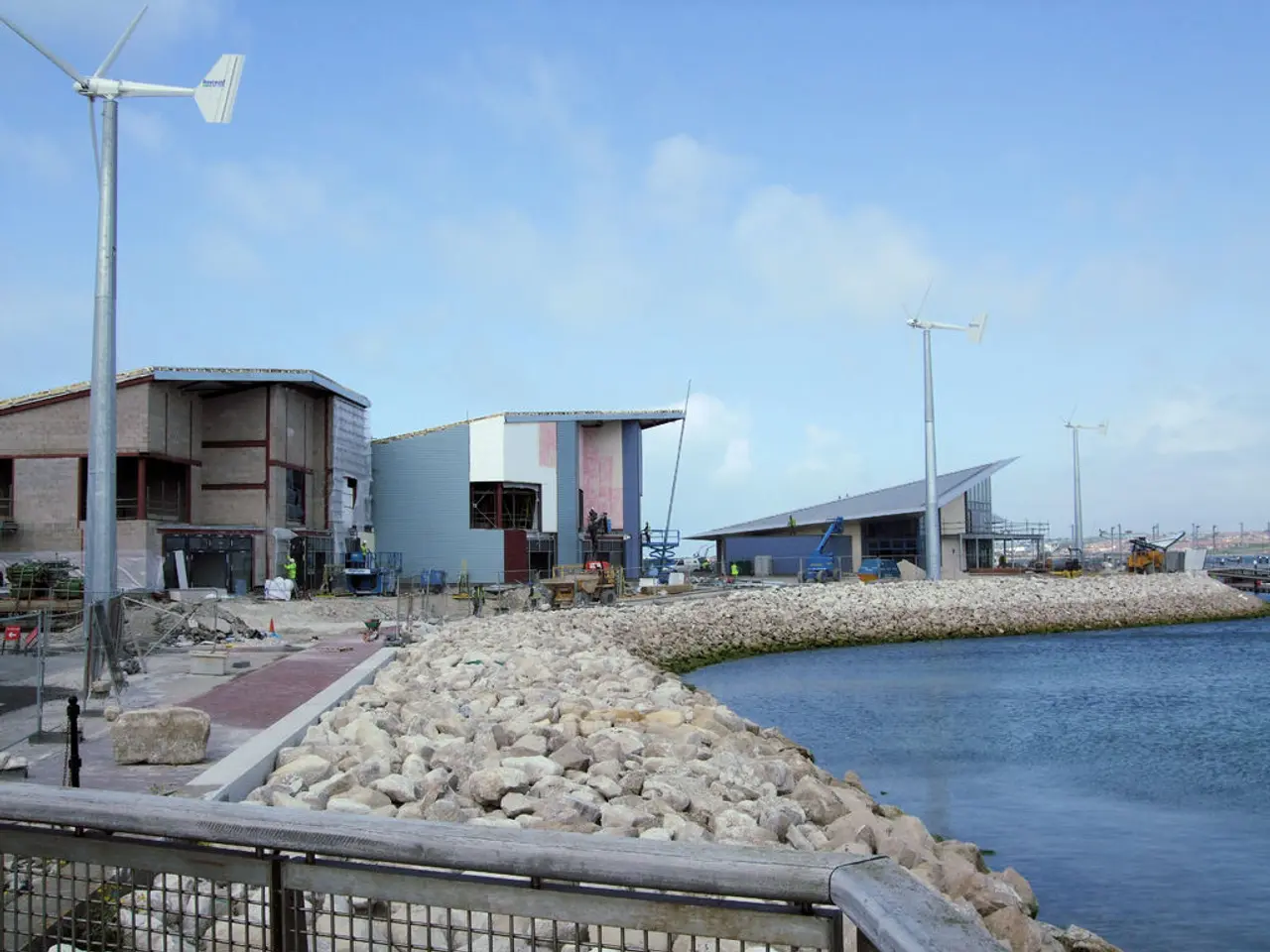Offshore wind project approval postponed by New Jersey energy authorities; Atlantic Shores development called off
New Jersey's Offshore Wind Development Hits Major Delays
New Jersey's ambitious plans for offshore wind energy development have encountered significant obstacles, with the New Jersey Board of Public Utilities (BPU) delaying several projects by more than two years and canceling the Atlantic Shores wind project.
The BPU's decision to delay the transmission infrastructure needed to connect offshore wind power to the grid is a response to federal policy uncertainty and a need to protect ratepayers from potential cost impacts. The delay will provide a respite to ratepayers during a time when there is no electricity to bring to shore.
The Atlantic Shores project, a 1.5-GW wind farm intended to power nearly 1 million homes, was a cornerstone of New Jersey’s strategy to reach 100% clean energy by 2035. Its cancellation is considered a significant blow to the state's clean energy targets.
The BPU's partnership with PJM Interconnection is a more cost-effective approach than when wind projects develop their own connections. This partnership will help transmit 3,500 megawatts of new electricity that is needed to meet increasing power demand.
The delay and cancellation of the Atlantic Shores project are not the only setbacks for New Jersey's offshore wind development. The Bureau of Ocean Energy Management has rescinded designated wind energy areas in federal waters, and the federal "Wind Memorandum" issued in January 2025 halted new offshore wind permits for review, leading to environmental permit remands and regulatory uncertainty.
These challenges have created a challenging environment for offshore wind projects in the state, affecting timelines and viability. The combination of federal policy shifts under the Trump administration, inflation, supply chain disruptions, rising interest rates, and geopolitical factors (such as the conflict in Ukraine) has compounded the difficulties.
Despite these obstacles, conservation groups like the New Jersey League of Conservation Voters, led by Ed Potosnak, vow to continue fighting for clean energy. Potosnak emphasizes that solar and wind are the cheapest forms of energy, and New Jersey deserves clean, affordable, renewable energy.
Kris Ohleth, director of the Special Initiative on Offshore Wind, calls the BPU's decision to delay the projects a "short-sighted" one. The BPU's delayed projects will now be required to meet a new in-service service deadline of January 2033.
In 2021, Gov. Phil Murphy announced a goal to increase the state's offshore wind energy target from 7.5 gigawatts by 2035 to 11 gigawatts by 2040. The BPU's decisions are a blow to New Jersey's plan to cut carbon emissions and reach 100% clean energy by 2035.
Despite the current challenges, the state continues to pursue a clean energy future, with utilities like Jersey Central Power & Light remaining committed to building more modern grid infrastructure. The BPU's decision to delay offshore wind power transmission infrastructure is a necessary move to protect ratepayers from costs related to offshore wind transmission development in the near-term. However, the progress in offshore wind specifically faces uncertainty and slowdowns tied to federal and market conditions.
[1] NJ Spotlight News: https://www.njspotlight.com/2022/08/bpu-delays-offshore-wind-transmission-infrastructure-by-more-than-two-years/ [2] NJ.com: https://www.nj.com/politics/2022/08/new-jersey-offshore-wind-project-is-delayed-again-by-the-bpu.html [3] Politico: https://www.politico.com/news/2022/08/05/new-jersey-offshore-wind-project-delayed-00044428 [4] CNN: https://www.cnn.com/2022/08/05/us/new-jersey-offshore-wind-project-delayed/index.html [5] Reuters: https://www.reuters.com/business/energy/new-jersey-offshore-wind-project-delayed-bpu-2022-08-05/
- The delay in New Jersey's offshore wind development, particularly the cancellation of the Atlantic Shores wind project, has raised concerns in the environmental-science industry, as the projects were a significant part of the state's strategy to combat climate-change by transitioning to renewable-energy sources.
- Despite the financial implications of the BPU's decision to delay several offshore wind projects, some conservation groups, like the New Jersey League of Conservation Voters, argue that investing in renewable-energy is crucial for the state's future, as solar and wind are the cheapest forms of energy.
- The setbacks in offshore wind development in New Jersey have implications for the state's overall clean energy targets, as the industry reels from federal policy shifts, inflation, supply chain disruptions, rising interest rates, geopolitical factors, and regulatory uncertainty, all factors that might slow down the transition to clean energy.




